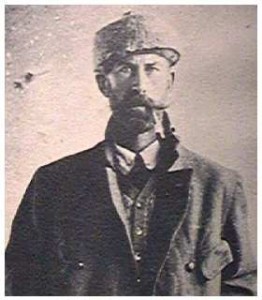From “The Lost City Of Z,” the 2005 New Yorker article by the great David Grann about Colonel Percy Harrison Fawcett, who came to a mysterious end in the 1920s while exploring an isolated Amazonian civilization:
“In the first decades of the twentieth century, Fawcett had been acclaimed as one of the last of the great amateur archeologists and cartographers—men who ventured into uncharted territories with little more than a machete, a compass, and an almost divine sense of purpose. Fawcett survived in the jungle for years at a time, without contact with the outside world, often subsisting for days on a handful of nuts; he was ambushed by hostile tribesmen, many of whom had never seen a white man before; he emerged with maps of regions from which no expedition had returned.
Yet it was his ‘quest,’ as Fawcett called it, to find Z that most captivated Lynch. For centuries after the discovery of the New World, many Europeans believed that a fantastical kingdom of untold wealth was concealed in the ethereal landscape of the Amazon. In 1541, Friar Gaspar Carvajal, a member of the first European expedition to descend from the Andes into the Amazon, reported glimpses of white Indians and women warriors who resembled the mythical Greek Amazons. One early map of South America was adorned with minotaurs and headless beings with eyes in their chests, and well into the twentieth century the Amazon remained, as Fawcett put it, ‘the last great blank space in the world.’
Lynch’s research made him feel certain that Fawcett, unlike so many of his predecessors, was not a soldier of fortune or a crackpot. Fawcett was a recipient of the Gold Medal, the highest honor bestowed on an explorer by the Royal Geographical Society; a skilled mapmaker; and a decorated hero of the First World War. He knew the Amazon as well as anyone. His younger son, Brian, said of him, ‘True, he dreamed; but his dreams were built upon reason, and he was not the man to shirk the effort to turn theory into fact.'” (Thanks Electric Typewriter.)
•••••••••
Grann discusses the topic with that pretend pablum-puker Stephen Colbert:

